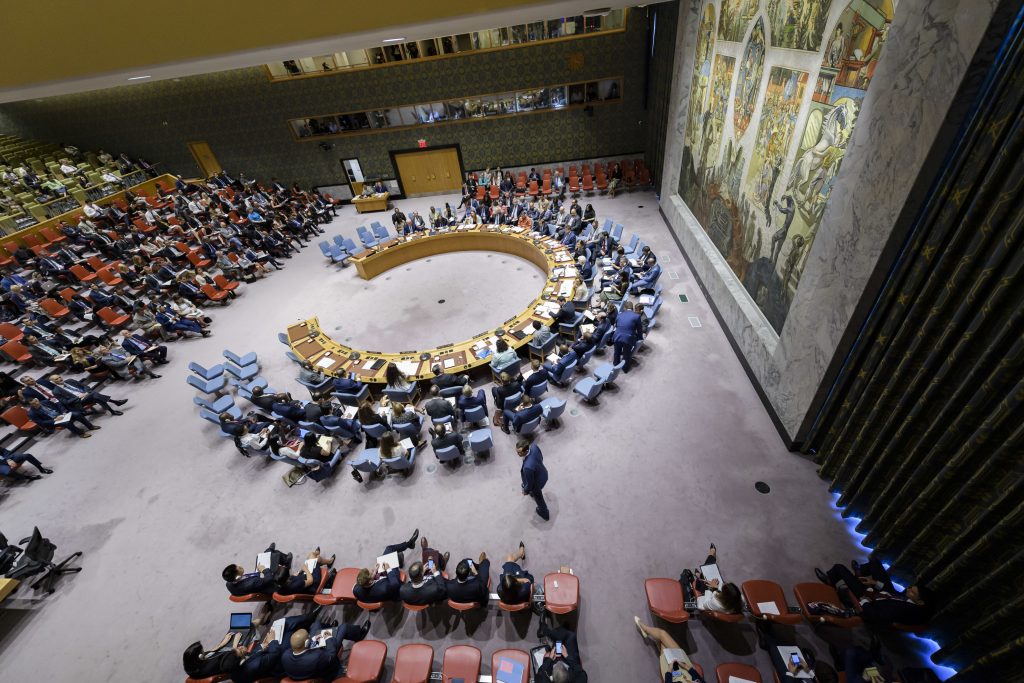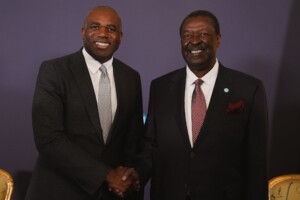UN Security Council extends sanctions on Sudan

The UN Security Council (Photo: UN)
NEW YORK –
The United Nations Security Council convened in New York on Wednesday, to extend Sudan’s imposed sanctions for an additional year. The sanctions, which broadly cover an arms-embargo, are targeted sanctions to improve Sudan’s national peace-building capacity.
The Security Council’s 13 member states which voted in favour of extending the mandate out of the 15-nation-organ, see the sanctions as a positive development, as they are caveats which will be “progressively lifted”, as long as the Sudanese government commits to fulfilling key benchmarks, vis-à-vis the implementation of the Juba Peace Agreement and the protection of civilians.
The two countries which chose to abstain, were the Russian Federation and China. The permanent UN Representative to Russia, Dmitry Polyanskiy, expressed that the sanctions served as an impediment to Sudan’s capability in “state-building and achieving socioeconomic development”.
The Chinese representative, Dai Bing, also added that the sanction’s caveated benchmarks were “outdated and should be lifted to reflect improved circumstances on the ground”. Bing stated that certain Security Council members “have no intention of lifting the sanctions and only seek to perpetuate them by setting benchmarks that cannot be met”.
The mandate will run until March 12, 2024, despite Sudan’s repeated demands that the UN Security Council lift the arms embargo on the Darfur region, originally pursuant to resolution 1591 by the council in 2005. Brazil’s representative, Joao Genesio De Almeida Filho, said his delegation voted in favour of the mandate’s extension; however, he preferred “that clearer, more concise benchmarks”, as well as a shorter sunset clause be provided. He added that the embargos are “temporary by definition” and regarded the evaluation mechanisms implemented by the resolution’s terms as a “positive change”.
US representative, John Kelly, said the council’s resolution encompassed the broad view of all member states. Kelly stated that the benchmarks were anchored in Sudan’s commitment to the Juba Peace Agreement, adding that a tri-monthly evaluative report would ensure Sudan’s commitment towards “the peace and prosperity they deserve”.
The council requested that a progress assessment on the key benchmarks to be fulfilled by December 1, 2023, be conducted in coordination with a Panel of Experts and the UN Secretary-General, António Guterres.
The assessment also outlined that Sudan submit requests for the sanctions committee’s consideration on approval for the movement of military equipment and supplies into the Darfur region, in the context of implementing the Juba Peace Agreement.
Lavrov visit
Last month, the Russian Foreign Affairs Minister, Sergey Lavrov, met with the Chairman of Sudan’s Sovereignty Council, Lt Gen Abdelfattah El Burhan, and praised Russia’s supportive stances on Sudan in regional and international forums.
El Burhan briefed the Russian FA Minister on the current political developments in the country the Framework Agreement and stressed the commitment of the military to exit politics.
The military leader praised Russia for its support of Sudan’s government and said that the relations between Khartoum and Moscow are based on cooperation and the exchange of common benefits between the two countries.
Lavrov conveyed the greetings of Russian President Vladimir Putin to the chairman of the Sovereignty Council. Putin apparently expressed his appreciation for Sudan’s positions in support of Russia in the meetings of the United Nations General Assembly that were recently held in New York.











 and then
and then